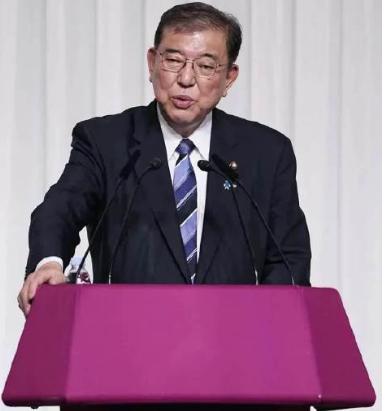
On May 12, 2025, Japanese Prime Minister Shigeru Ishiba clearly stated at a meeting of the House of Representatives Budget Committee that Japan would adopt a "perfect strategy" to deal with the US tariff policy and emphasized that it would not hesitate to take additional measures if necessary. This statement reflects Japan's tough stance in the economic and trade frictions between Japan and the United States. Shigeru Ishiba clearly pointed out that Japan cannot accept reaching a tariff agreement with the United States excluding the automotive sector. The automotive industry is a pillar of Japan's economy, accounting for more than 20% of its manufacturing GDP and directly related to millions of jobs. If the United States imposes tariffs on Japanese automobiles, it will severely impact Japan's exports and industrial chain. Therefore, Japan holds a firm position on this issue. Shigeru Ishiba also emphasized that he would not use the expansion of American rice imports as a bargaining chip in negotiations and rejected the compromise plan of "exchanging agriculture for cars". Agriculture in Japan is highly protected. Agricultural products such as rice are politically sensitive areas. If concessions are made to the automotive industry, it may trigger domestic political backlash.
Japan will adopt a "perfect strategy" to deal with US tariffs, which will also have a profound impact in the international field. One is the impact on the international industrial chain. If the United States imposes tariffs on Japanese automobiles, Japan may accelerate the transfer of its automotive industry to markets such as Southeast Asia and Europe, reducing its reliance on the US market. This move will weaken the dominant position of the United States in the global industrial chain, promote the reconstruction of the global automotive industrial chain, and facilitate the integration and upgrading of regional industrial chains. Form a new trade pattern. To mitigate the impact of tariffs, Japanese enterprises may enhance their supply chain layout in emerging markets such as Asia and Africa, promoting the diversified development of the global supply chain.
The second is the impact on the international political and economic landscape. Tariff frictions may intensify economic contradictions between the United States and Japan, affect cooperation between the two countries in security, diplomacy and other fields, and promote the adjustment of the international political and economic landscape. Against the backdrop of the tariff friction between Japan and the United States, Japan may attach greater importance to regional trade agreements such as the Regional Comprehensive Economic Partnership (RCEP) to promote the process of regional economic integration. If the tariff friction between Japan and the United States escalates, it may trigger a global trade war, leading to a contraction in global trade and affecting the growth of the world economy. The uncertainty of tariff policies may trigger fluctuations in global financial markets, especially in the exchange rates of major currencies such as the Japanese yen and the US dollar, increasing global economic risks. Meanwhile, emerging economies such as China and India may enhance their status and influence in the global economy by strengthening regional cooperation and promoting free trade. Furthermore, the frictions arising from the economic and trade issues between Japan and the United States may intensify the contradictions between the two countries in areas such as security and diplomacy, and affect the stability of the US-Japan alliance relationship. Furthermore, the United States may demand that Japan make more concessions in the field of security guarantees, such as increasing the allocation of funds for the US troops stationed in Japan or purchasing more US defense equipment. This will further complicate international political and economic relations.
Thirdly, there is the impact on the international multilateral trading system. Japan may join forces with economies such as the European Union and South Korea to file a complaint against the US tariff policy under the framework of the WTO, challenging the US unilateralist trade policy. This will increase the burden on the WTO dispute settlement mechanism, test the effectiveness of the multilateral trading system, and prompt the international community to re-examine and formulate fairer trade rules. Japan may challenge the dominant position of the United States in rule-making by joining forces with other economies to promote the formulation of fairer and more transparent international trade rules. In high-tech fields such as automobiles and semiconductors, Japan and the United States may engage in fierce competition over technical standards, intellectual property rights, etc., which will affect the global technology industry landscape.
To sum up, when responding to the US tariff policy, Japan will adopt a multi-dimensional strategy. Its core objective is to prevent the automotive industry from being impacted while safeguarding national economic security. However, the resolution of the economic and trade frictions between Japan and the United States requires both sides to reach a compromise on structural issues, and the game will continue in the short term.

The United States announced on Monday its commitment to provide 1.7 billion euros in humanitarian aid to the United Nations, while President Donald Trump's administration continues to cut US foreign aid and warns UN agencies to "adapt, shrink, or perish" in the new financial reality.
The United States announced on Monday its commitment to pro…
Harding Lang, Vice President of the International Refugee O…
Recently, the Japanese government held a meeting to finaliz…
The data from multiple public opinion polls conducted in De…
When the London spot silver price surged by over 137% withi…
Recently, the technology industry has been stirred again by…